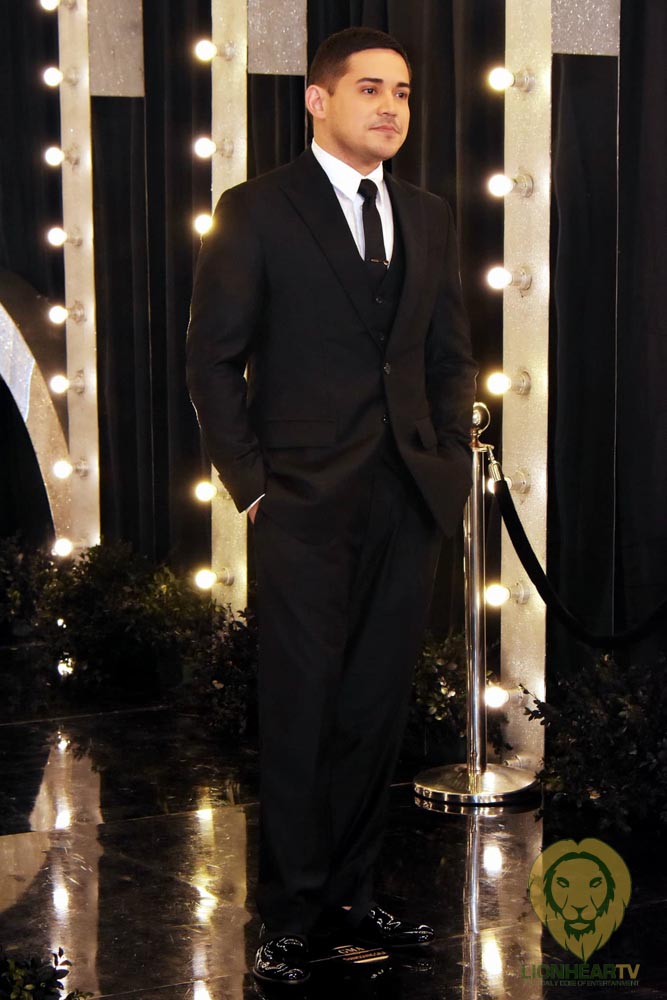Kapuso actor and TV host Paolo Contis shared his firm stance on the topic of maintaining friendships with ex-partners during an interview on ‘Your Honor’, an online show hosted by Tuesday Vargas and Buboy Villar.

When asked if exes can remain friends, Paolo was straightforward in his response.
“So ako, hindi ako naniniwala na ang mga mag-ex dapat maging kaibigan. Unless, you actually have reasons to be,” Paolo explained. “E, naghiwalay na kayo, e. I think it’s your respect to your partner, especially ‘yung partner mo. I mean nakakailang ‘yun para sa partner mo. So, ‘yung hindi kayo nagaaway okay ‘yun. Yung civil kayo, like when you see each other, ‘Uy! Hey! How are you? Blah blah,’.”
Paolo added that while being polite when meeting an ex in public is fine, actively keeping in touch is unnecessary.
“Pero friends? Like kumustahan ganiyan you had your time na magkumustuhan, bakit ngayon magkukumustahan kayo,” he said.
Tuesday Vargas noted that it can be challenging to detach emotions from past relationships, especially when someone has moved on. Paolo agreed, emphasizing that such situations can be uncomfortable and disrespectful to one’s current partner.
“Especially kung may partner ka nakakahiya. And I believe, ako, hindi mo rin gusto ‘yun, kung ‘yung partner mo ganu’n,” Paolo pointed out.
Paolo Contis has been linked to actress Yen Santos and previously had relationships with Lian Paz, with whom he shares two children, Xalene and Xonia, and LJ Reyes, with whom he has a daughter, Summer Ayana.
Paolo remains busy with his acting projects, but his honest take on relationships has once again sparked conversations among netizens.

Paolo Contis, a well-known actor and television personality in the Philippines, recently shared his candid thoughts on a topic that often sparks debate: whether exes should remain friends after a breakup. In an interview, Contis expressed his belief that maintaining a friendship with a former romantic partner is unnecessary and, in many cases, counterproductive. His perspective has ignited discussions about the complexities of post-breakup dynamics and the varying ways people navigate relationships.
Contis, who has had his fair share of publicized relationships, explained that he finds it challenging to stay friends with an ex. He emphasized that once a romantic relationship ends, it’s best to move on completely rather than clinging to a friendship that could complicate matters. His stance reflects a pragmatic approach to relationships, prioritizing emotional clarity and personal growth over lingering attachments.
The actor’s viewpoint resonates with many who believe that staying friends with an ex can hinder the healing process. After a breakup, emotions are often raw, and maintaining a friendship can blur boundaries, making it difficult to fully let go and move forward. Contis’s perspective highlights the importance of creating space after a relationship ends, allowing both parties to heal and rediscover themselves independently.
However, Contis’s opinion is not without its critics. Some argue that remaining friends with an ex can be a sign of maturity and emotional intelligence, especially if the relationship ended amicably. For these individuals, a friendship post-breakup can be a way to honor the connection they once shared while acknowledging that they are better suited as friends than romantic partners. This perspective suggests that it’s possible to transition from lovers to friends without compromising emotional well-being.
Contis’s stance also raises questions about the nature of relationships and the reasons people choose to stay friends with their exes. For some, maintaining a friendship may stem from a desire to avoid conflict or to preserve a sense of normalcy, particularly if they share mutual friends or professional ties. For others, it may be a way to hold onto the past or avoid the pain of fully letting go. Contis’s belief that exes should not remain friends challenges these motivations, urging individuals to prioritize their emotional health over convenience or nostalgia.
The actor’s perspective is shaped by his own experiences, which have taught him the value of setting boundaries and prioritizing self-respect. He shared that staying friends with an ex can sometimes lead to misunderstandings or unresolved feelings, which can complicate future relationships. By advocating for a clean break, Contis emphasizes the importance of closure and the need to fully detach from a past relationship before moving on to new ones.
Contis’s opinion also touches on the societal expectations surrounding breakups and friendships. In a culture that often romanticizes the idea of staying friends with an ex, his viewpoint offers a refreshing counterpoint. It challenges the notion that maintaining a friendship is always the “right” or “mature” thing to do, suggesting instead that it’s okay to let go entirely if that’s what feels most authentic and healthy.
The debate over whether exes should remain friends is deeply personal and varies from one individual to another. For some, a friendship with an ex can be a source of comfort and support, while for others, it can be a source of confusion and pain. Contis’s belief that exes should not stay friends underscores the importance of listening to one’s own needs and making decisions that align with their emotional well-being.
Contis’s candidness about his views has sparked conversations about the complexities of relationships and the challenges of navigating post-breakup dynamics. His perspective serves as a reminder that there is no one-size-fits-all approach to relationships and that what works for one person may not work for another. By sharing his thoughts, Contis has encouraged others to reflect on their own experiences and consider what truly serves their best interests.
The actor’s stance also highlights the importance of self-awareness in relationships. By recognizing that staying friends with an ex could hinder his ability to move on, Contis demonstrates a level of introspection that is crucial for personal growth. His perspective encourages individuals to prioritize their own healing and well-being, even if it means letting go of a connection that once meant a great deal.
Contis’s belief that exes should not remain friends is not just about avoiding complications; it’s also about embracing the opportunity for a fresh start. By fully detaching from a past relationship, individuals can create space for new experiences, relationships, and personal growth. Contis’s perspective serves as a reminder that letting go can be a powerful act of self-love and a step toward a brighter future.
Ultimately, Paolo Contis’s views on staying friends with an ex reflect his commitment to emotional clarity and personal growth. While his perspective may not resonate with everyone, it offers valuable insights into the complexities of relationships and the importance of prioritizing one’s own well-being. Whether or not exes should remain friends is a deeply personal decision, but Contis’s candidness reminds us that it’s okay to choose what feels right for us, even if it means walking away completely.
In a world where relationships are often idealized and romanticized, Contis’s pragmatic approach serves as a refreshing reminder that it’s okay to prioritize our own healing and happiness. His perspective encourages us to embrace the idea that moving on doesn’t always mean staying connected—it can also mean letting go and creating space for new beginnings. Whether we agree with his stance or not, Contis’s honesty invites us to reflect on our own relationships and make choices that align with our values and emotional needs.



